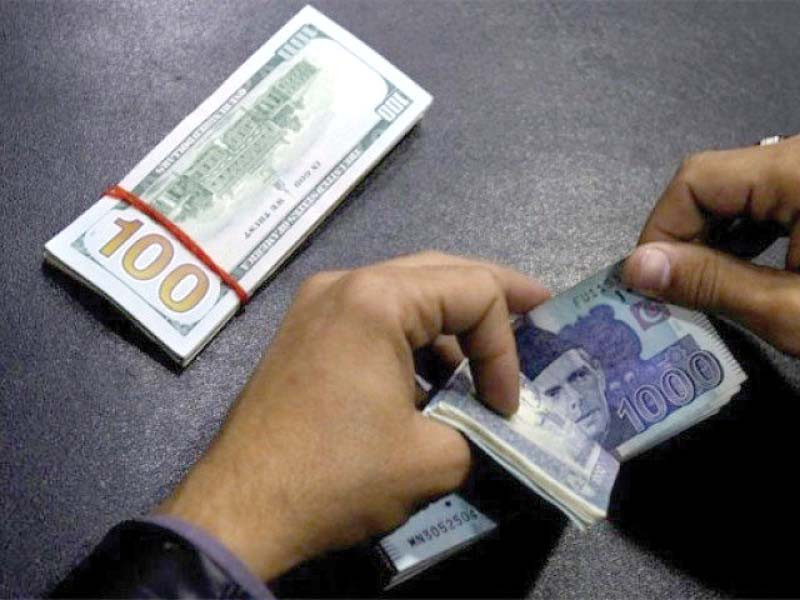
Pakistan’s economy and capital markets are expected to face mounting pressure when the country returns to work from Eid holidays on Friday in the wake of an aggressive hike in the benchmark interest rate by the US Fed and a rebound in international oil prices during the long break.
Besides, the government has not yet claimed any success in getting fresh bailout packages from friendly countries including Saudi Arabia and the United Arab Emirates (UAE).
The global developments are anticipated to mount pressure on the Pakistani rupee against the US dollar and force the State Bank of Pakistan (SBP) to consider increasing the benchmark interest rate to counter inflation and discourage unnecessary imports.
Consequently, the economy will slow further. In the aftermath of the most likely events, “the domestic capital markets (including Pakistan Stock Exchange) may come under pressure”, Ismail Iqbal Securities Head of Research Fahad Rauf said while talking to The Express Tribune.
“The economy may remain messed up till the International Monetary Fund (IMF)’s $6 billion loan programme is resumed (by the end of May 2022),” said Arif Habib Limited Head of Research Tahir Abbas.
The US central bank, Federal Reserve, has increased its benchmark interest rate by half a percentage point, which is the biggest hike in two decades in the history of America.
“The monetary tightening by Fed will strengthen the US dollar against global currencies,” Rauf said, adding that Pakistani rupee may also see some depreciation “despite standing near and around its fair value (Rs185-186 against the US dollar) at present”.
Abbas said the international crude oil prices had bounced back to over $110 per barrel during the holidays in Pakistan after Europe strongly considered stopping oil purchases from Russia in protest against Moscow’s invasion of Ukraine.
“The hike in global oil prices stands negative for Pakistan,” he said.
The latest trade data suggests that Pakistan’s oil import bill has continued to rise due to persistent increase in global energy prices.
Read How to get economy moving again?
Otherwise, the non-energy import bill has gone down over the past two months (February-March). The share of energy imports stands at 25% in terms of dollar value out of total imports of Pakistan in the first nine months (Jul-Mar) of current fiscal year 2021-22.
“The surge in global energy prices (during Eid holidays) will further widen the energy import bill for Pakistan,” he said.
“The situation demands that the government immediately withdraw subsidies on petroleum products and electricity, as the country can no longer afford to pay over Rs90 billion a month in subsidies.”
The IMF has also set the condition of scrapping the subsidies for the resumption of its $6 billion loan programme.
The government is highly expected to gradually start withdrawing the subsidies ahead of the scheduled visit of an IMF team this month to complete the sixth review of economy under the loan programme.
“The renewal of the IMF programme may convince (the) friendly countries to announce their bailout packages though the size of the packages may remain low.”
“Like Saudi Arabia may announce to roll over the deposits of $3 billion into the State Bank of Pakistan’s (SBP) account and enhance the limit of supply of oil on deferred payments,” Rauf said.
China, which is another friendly country, may also opt to roll over its much awaited $2.5 billion to Pakistan after the IMF programme is resumed.
He said that Pakistan “immediately requires measures to boost its foreign exchange reserves which have continued to deplete for the past four months or so”.
The reserves have depleted to a critical level of one-anda-half month import cover (around $11 billion) against the usual level of over two and-a-half month import cover.
The rising energy import bill may persuade the central bank to increase the benchmark interest rate by 100 basis points to 13.25% in its meeting scheduled for May 23, Abbas said.
Besides, the likely withdrawal of subsidies on energy would cut demand for petroleum oil products and power and automatically reduce the related import bill as well, he said.
Earlier, the SBP increased the benchmark interest rate by a massive 250 basis points to a two-year high at 12.25% in an emergency meeting on April 7.
Moreover, the rupee depreciated close to Rs186 against the US dollar before the Eid holidays began from around Rs181 in mid of April, after PML-N formed a coalition government in the parliament.

1719660634-1/BeFunky-collage-nicole-(1)1719660634-1-405x300.webp)

1732276540-0/kim-(10)1732276540-0-165x106.webp)

1732274008-0/Ariana-Grande-and-Kristin-Chenoweth-(1)1732274008-0-165x106.webp)












COMMENTS
Comments are moderated and generally will be posted if they are on-topic and not abusive.
For more information, please see our Comments FAQ